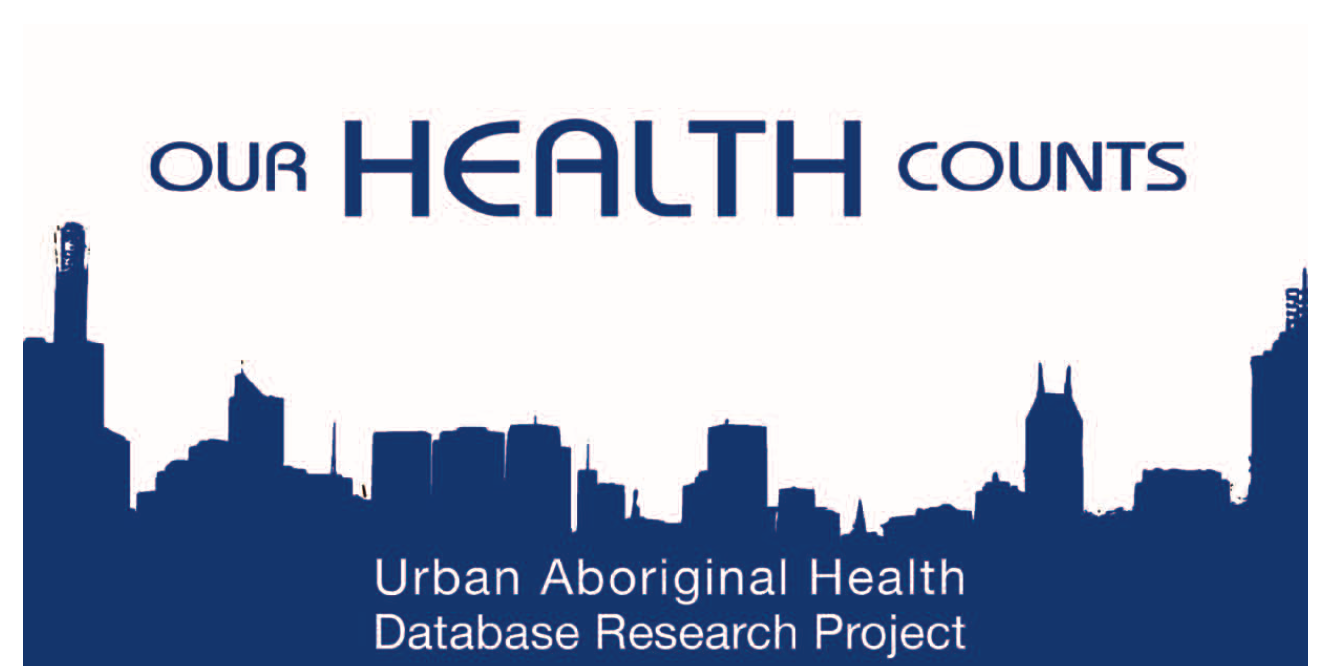Our Health Counts Hamilton

Over 60% of Ontario’s Aboriginal population lives in urban areas.¹ Public health
assessment data for this population is almost non-existent, despite its size (150,570 persons).
Th is is primarily due to the inability of Ontario’s current health information system to
identify urban Aboriginal individuals in its health datasets. Health assessment data that do
exist are most oft en program or non-random survey based, not population based. When
urban Aboriginal people have been included in census based national surveys (such as the
Canadian Community Health Survey (CCHS) these surveys are vastly underpowered and
First Nations, Inuit, and Métis data cannot be disaggregated. From a population and public
health perspective, this near absence of population based health assessment data is
extremely concerning, particularly given the known disparities in social determinants of
health. Th is situation is unacceptable in a developed country such as Canada.
As a result of these deficits in urban Aboriginal health information, policy makers in
community organizations, small regions, and provincial and federal governments are
limited in their abilities to address urban Aboriginal community health challenges and
aspirations. Without Aboriginal health information, effective health policy, planning,
program/service delivery, and performance measurement are limited. Moving toward
basic population health measures is essential to improve the health status, access to
services, and participation in health planning processes affecting Aboriginal people.
For the past three years, the Ontario Federation of Indian Friendship Centres (OFIFC),
Métis Nation of Ontario (MNO), Ontario Native Women’s Association (ONWA), and
Tungasuvvingat Inuit (TI) have been working with a health research team led by
Dr. Janet Smylie based at the Centre for Research on Inner City Health (CRICH),
Saint Michael’s Hospital, on the Our Health Counts Urban Aboriginal Health Database
project. For the First Nations arm of the project, the community organizational partner
was De dwa da dehs ney>s Aboriginal Health Access Centre, which represented the
interests of the First Nations community in Hamilton on behalf of the broader
Hamilton Executive Directors Aboriginal Coalition.
The goal of the Our Health Counts (OHC) project was to work in partnership with
Aboriginal organizational stakeholders to develop a baseline population health database
for urban Aboriginal people living in Ontario that is immediately accessible, useful, and
culturally relevant to local, small region, and provincial policy makers.
The Our Health Counts Urban Aboriginal Health Database project was funded by OFIFC,
the Ministry of Health and Long Term Care (MOHLTC) Aboriginal Health Transition
Fund, and CRICH. Organizational partners included OFIFC, MNO, ONWA, TI and Saint
Michael’s Hospital. Community partners included De dwa da dehs ney>s Aboriginal
Health Access Centre (on behalf of the Hamilton Executive Directors Aboriginal
Coalition), MNO and TI.
Th ere were three project community sites: First Nations in Hamilton, Inuit in Ottawa, and
Métis in Ottawa. This report focuses on the First Nations in Hamilton community site,
which was chosen as the First Nations project community site because of its significant
Aboriginal population (13,735) persons reporting Aboriginal ancestry according to the 2006
Census) and strong infrastructure of Aboriginal community health and social services.
Learn more about the Our Health Counts Hamilton project at www.ourhealthcounts.ca
Our Health Counts Hamilton Report
Our Health Counts Hamilton Community Report Research Brief
Our Health Counts Hamilton Publications
(2015) Mental health and substance use in an urban First Nations population in Hamilton, Ontario